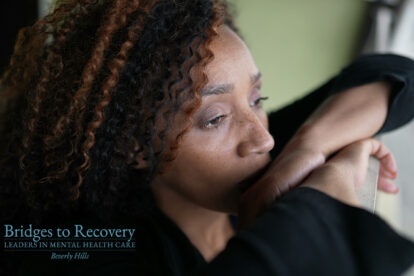How I Live with Schizophrenia – The Steps I took to Manage My Condition

Schizophrenia is a serious mental illness, but it is possible to live with it and to manage symptoms to prevent or minimize episodes. Intensive residential treatment, medications, ongoing therapy and aftercare, social support, and healthy lifestyle choices are effective, positive ways to manage and live well with schizophrenia.
I live with schizophrenia, and I live well. I have a job and live on my own. Sometimes I struggle, but I want other people to see that there is no shame in living with this mental illness. Getting the diagnosis was devastating, but once I learned more about schizophrenia and really committed to treatment my life turned around.
Symptoms lessened, I could go back to school and earn my degree, and with the support of my family I graduated, got a job, and found an apartment near my parents. If you have been diagnosed with this condition, there is hope and help.
A Diagnosis Was Essential
I struggled a lot initially living with schizophrenia, because I wasn’t diagnosed right away. The first signs occurred when I was still in high school, and I know now that it’s hard to make a schizophrenia diagnosis in teenagers. Some of the early signs just seemed to my parents like normal teenage behaviors, even if they were problematic.
For example, I stopped hanging out with some of my old friends, but my parents just assumed I was making new friends. The truth was that I was getting more isolated. My attitude also shifted and I got really irritable, but again, to my parents this just seemed like normal teenage issues.
When I came home after my first year in college, having nearly failed all my classes and with my moods so much worse than before, my parents took me to see a doctor. They thought I might have depression. It took a few visits with specialists, but eventually I got a diagnosis of schizophrenia.
I had known something wasn’t right—I had just started having hallucinations and thought my roommate at school was spying on me, so I was delusional as well. I just didn’t know what it was. While no one wants to hear they have a psychotic disorder, it was also a relief. Finding out I had schizophrenia ultimately changed my life for the better.
I Chose Residential Treatment
My parents wanted to give me most of the responsibility for deciding what to do next, and after learning more about my condition I decided to go to a residential treatment facility. I committed to staying for two months but also agreed to stay longer if necessary. It was the best choice I could have made. In treatment, I learned more about schizophrenia and finally understood why I felt so different for the last couple of years.
I ended up staying in treatment for three months. It took some time to find a medication that kept the hallucinations and bad feelings at bay and didn’t cause terrible side effects. It also took this amount of time to really benefit from the intensive therapy that is now helping me live a normal, independent life.
Because I chose residential care I got to try different types of therapy and really dig into my symptoms and how to manage them. I worked with a behavioral therapist most of the time. She helped me learn to recognize my thought patterns that were unhealthy and change them. She also helped me make some very positive changes to how I behave and react to external factors.
I also got to go through some family therapy with my parents, so they could learn more about my condition. We all learned how to communicate better. In group sessions with other patients, I developed and practiced better relational and social skills, which was particularly helpful when I went back to school.
I Keep Up With My Medications
Residential treatment was a long process, but it truly gave me the foundation for being able to manage my condition for the rest of my life. One of the aspects of treatment I initially resisted was medication. I didn’t like how it made me feel, but the staff at the treatment center was patient with me and helped me try three different ones before I found the right drug.
Now I know how important medication is to managing schizophrenia. As hard as it sometimes is to keep taking my drugs every day, I know I have to stick with it or I can easily slip back into an episode. And when it feels like they aren’t working as well anymore or I get some new side effects, I talk to my doctor immediately to figure out what to do next. Sometimes, one drug may stop working and I know I’ll need to try another.
Begin Your Recovery Journey.
877-727-4343Therapy Helps Me Cope, Even after Residential Care
One of the most important things I learned about schizophrenia is that it isn’t ever going to go away. There is no cure, but instead of letting that fact overwhelm me, I just need to accept that I have a chronic illness. Like someone with high blood pressure or diabetes, I need to keep treatment going.
This means I check in with my therapist at least once a week. We talk about how things are going; I tell her about any struggles I have, and my successes too; and she helps me regroup and use the strategies I learned in treatment to manage stress and cope with bad feelings and moods. Even when I’m feeling good, I don’t skip these sessions. I know that it’s easy to slip back into an episode of symptoms, and therapy helps me maintain a handle on my illness.
My Physical Health Is a Priority
Sticking with my medication and with therapy are so important for my overall well-being, but I also take steps to be well in other areas of my life. For instance, before I was diagnosed, I had been drinking a lot in college. I used alcohol to try to silence the voices that kept talking to me and that I now know aren’t real.
I don’t drink anymore, because alcohol only made me feel worse. I never got addicted, but I was headed in that direction. I also take care of my physical health and manage stress by eating well. I grocery shop with my mom once a week to help keep me on track, and we do Sunday night meal prep together in my apartment. I started jogging to get exercise, and that has become a really positive area of focus in my life. I do races now and look forward to the training and event.
All of the hard work I have put into learning about and managing schizophrenia have paid off for my life as a healthy, independent adult. I can’t say enough about taking the time to focus on intensive treatment. It gave me the foundational knowledge and the basis for taking care of myself now and in the future.
Bridges to Recovery offers comprehensive treatment for people struggling with mental health disorders as well as co-occurring substance use disorders. Contact us to learn more about our renowned Los Angeles programs and how we can help you or your loved one start on the path to lasting wellness.






